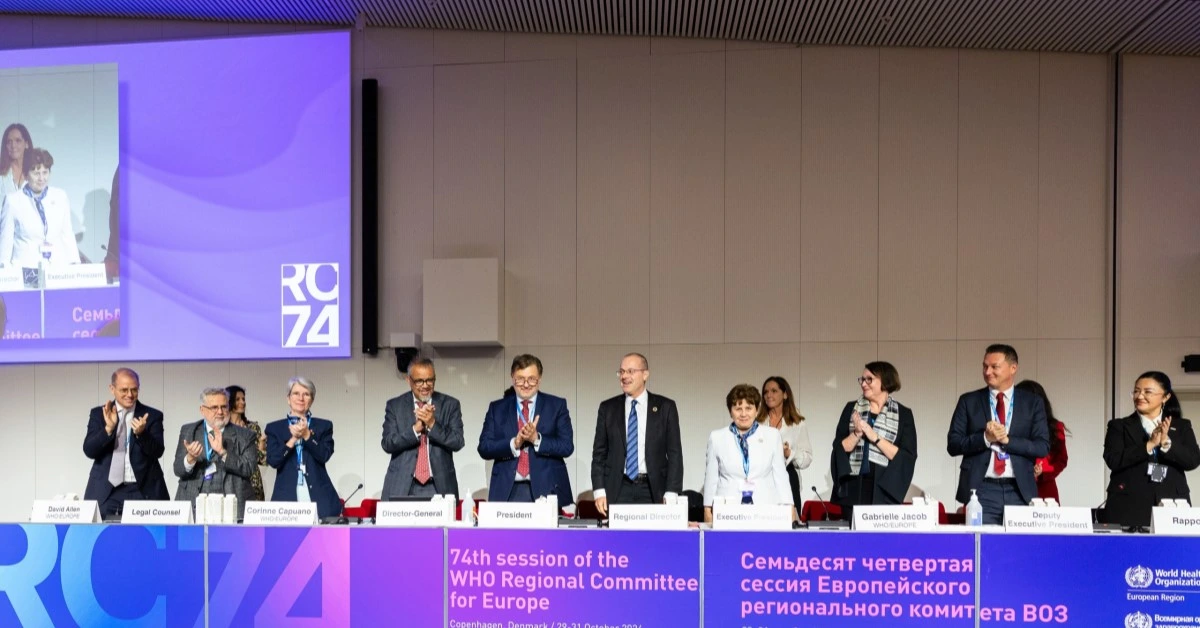
SWITZERLAND – In a series of pivotal meetings held across Doha, Washington D.C., Copenhagen, Manila, and Brazzaville, member states of the World Health Organization (WHO) have come together to set critical policies and frameworks that will guide health initiatives in the coming years.
These annual sessions, which involve the governing bodies from WHO’s six regions, are essential for formulating regional health policies, overseeing WHO activities, and managing budgetary concerns.
The final session in this regional series culminated in the nomination of Dr. Hans Henri Kluge for a second five-year term as WHO Regional Director for Europe, starting February 2025.
Dr. Kluge has been at the forefront of the WHO’s response to the COVID-19 pandemic and numerous other health emergencies, demonstrating remarkable leadership during his tenure.
“By identifying and acting on priorities of importance to the almost one billion people across Europe and Central Asia, our Member States display welcome solidarity and multilateralism at a time of deepening distrust and division,” he remarked.
In August, the African Region’s committee appointed Dr. Faustine Engelbert Ndugulile from Tanzania as the new Regional Director, succeeding Matshidiso Moeti, who was the first female director for the region and served for a decade.
During the session, WHO Director-General Dr. Tedros Adhanom Ghebreyesus reaffirmed the organization’s commitment to supporting the Africa CDC and the African Medicines Agency amidst rising tensions between the two bodies.
Strategic health initiatives across regions
The Pan American Health Organization’s Directing Council, meeting in early October, introduced a new roadmap aimed at strengthening health systems and addressing climate-related health challenges.
This strategic plan is a response to pressing public health issues, highlighting the need for robust frameworks that can adapt to changing environmental conditions.
The Western Pacific Region’s meeting, which took place from October 21 to 25, addressed the urgent need for increased public health funding.
Despite recent reforms, the region continues to struggle with inadequate health financing. “In 2019, over 300 million people faced catastrophic health costs,” the Regional Office stated.
To tackle this, member states approved a regional action framework focused on improving health financing across five domains, including enhancing public funding and promoting equitable health spending.
Addressing regional conflicts and health crises
On October 14, the Eastern Mediterranean Region convened in Doha, where the discussions were dominated by the ongoing conflicts in Gaza, Sudan, Yemen, and Lebanon.
These crises have severely impacted health infrastructure and led to outbreaks of vaccine-preventable diseases.
“We have learned from pandemics and epidemics the importance of solidarity, and that protecting health requires global efforts that transcend national borders,” stated Dr. Hanan Al-Kuwari, Qatar’s Minister of Health.
Dr. Tedros highlighted the urgency of the situation, noting, “The eruption of conflict in Lebanon has put the health of millions more people at risk.”
He also urged member states to engage in negotiations for a Pandemic Agreement and to participate in the WHO Investment Round aimed at raising US $7 billion for WHO’s upcoming budget.
Progress in South-East Asia
In early October, South-East Asian member states gathered to address adolescent health and set ambitious targets for measles and rubella elimination.
Despite political unrest in Bangladesh, the session proceeded as scheduled, showcasing regional resilience.
Dr. Saima Wazed, the newly appointed SEARO Regional Director, noted, “The progress being made in the Region is heartening,” as she recognized several countries for achieving health-related Sustainable Development Goals (SDGs).
New funding strategies for WHO
A novel approach during these Regional Committee meetings was the introduction of WHO’s ‘Investment Round‘ strategy, which aims to enhance voluntary contributions from member states to bridge funding gaps.
Notably, the SEARO region alone pledged US $345 million during its inaugural investment round, highlighting a growing commitment to bolster WHO’s budget.
Meanwhile, other regions such as Africa and the Western Pacific also made significant financial commitments, indicating a concerted effort to support global health initiatives amid increasing challenges.
XRP HEALTHCARE L.L.C | License Number: 2312867.01 | Dubai | © Copyright 2025 | All Rights Reserved